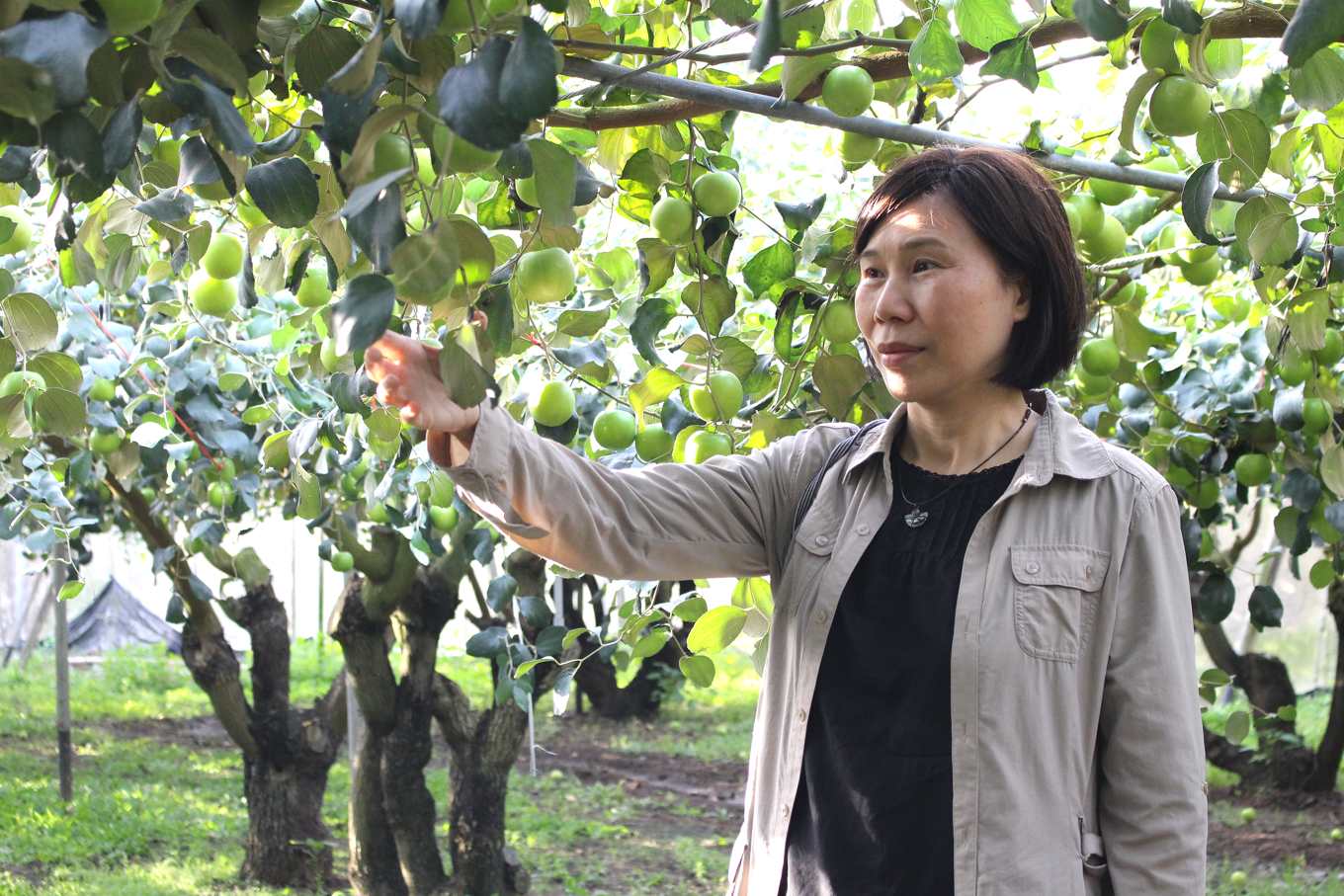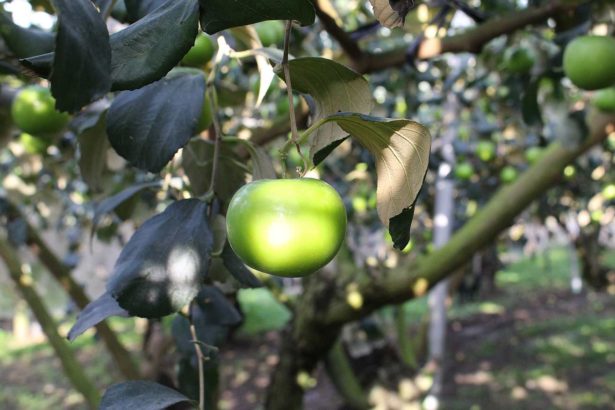The farmer turned over because of her! Qiu Zhuying has been involved in jujube breeding for nearly 30 years.
Share + 1 Tweet Email
Bite off a round, green fruit, juicy and refreshing, sweet but not greasy, at first glance thought to be a green apple, it turned out to be a rich "precious honey jujube", and this is only one of the varieties. Taiwan jujube varieties are like a hundred flowers blooming, each has its own characteristics, from the thickness of the pericarp, sweetness, juice rate, fruit size.
Jujube was first introduced into China from India. This variety has thick skin, heavy astringency and small grains, which is the established impression of jujube by the older generation. However, after Qiu Chu-ying, a fruit tree researcher at the Agricultural improvement Farm in Kaohsiung District, plunged into jujube breeding, he turned over the world of jujube.

与其儿子李俊达(左)1.jpg)
Jujube farmer Li Yongcong (right) and his son Li Junda (left) Photo / Liu Yixin
Li Yongcong believes that although the price of the domestic residential distribution market is good, the domestic market volume gradually decreases after the end of the year, so he hopes to expand export. "Last year, he began to try to hit the export market on the 11th." For example, when it was exported to Dubai a few days ago, "traders said that the jujubes that arrived were super sweet and would certainly sell well."
Li Yongcong grows five-and-a-half 12 precious and four-and-a-half 11 precious honey, mainly in the residential distribution market. In the past, he also planted old Indian varieties, "but the harvest time is different, astringent and unpalatable." After Qiu Zhu-ying developed a variety of varieties, she updated all the way to the present, "We all follow her."
Although jujube is planted and can be harvested every year, it is inevitable to encounter difficulties when replacing new varieties, such as unsuccessful grafting and low yield. "but you have to fight! Follow the trend of the times, or you will be eliminated, and guests like to taste fresh. " The first year is the running-in period, and the second year will gradually stabilize.
Fruit growers: without Kaohsiung Agricultural Reform Farm, there would be no achievements of today's Taiwan jujube.
Su Wencai, a jujube grower in Kaohsiung Dashe, began to grow jujube in 1983. in the past, he planted more old varieties of "Gaolang No. 1," followed by precious treasures, honey, treasures, and so on. "as long as they can attract consumers and farmers' income is improved, farmers will have a high degree of acceptance of new varieties."
However, Su points out that each jujube variety has a different personality, and it is necessary to slowly understand how to take care of it. "the harvest of each variety is not the same. Cherished and precious honey can be harvested by changing the color of the jujube tail, while the old varieties can be harvested to see if the pedicel is all open." He said with a smile, "when I planted a new variety for the first time, I didn't even know how to look at it or how to harvest it. I didn't know until Dr. Qiu actually picked a few to show me."
"it takes two years to become familiar with a variety." Special attention should be paid to the amount of fruit thinning. "whether fruit thinning is thorough or not will affect the follow-up quality and yield is very different." Every time a variety is changed, it is a study. Su Wencai believes, "A good variety is to keep pace with the times." In the past, the average fruit weight of the old varieties was only 22 taels, but now the fruit weight of the varieties is about 3 / 2 to 4 / 2.
Su Wen-Tsai points out that he mainly grows treasures, honey, and treasures, and takes advantage of their growth period to stagger the harvest time all the way from November to mid-April of the following year. Not only reduce the collection of manpower, but also maintain good quality jujube continuous shipment.
Apart from producing and selling themselves and delivering them to the wholesale market, Su Wen-Tsai is also steadily exported to Hong Kong. He said that in the third year of export to Hong Kong this year, the quantity was about 600 jin a week from early December to mid-March. "the taste of dates from China and Taiwan is really much different, and the climate determines the quality." He also stressed, "without the Kaohsiung improvement field, there would be no achievements of today's Taiwan jujube."
Surviving the typhoon, jujube farmers accidentally found "cherished" sweet, crisp and juicy flesh.
Share + 1 Tweet Email
- Prev

The farmer turned over because of her! Qiu Zhuying put into jujube breeding for 30 years, exploding pulp and juicy flowers.
The farmer turned over because of her! Qiu Zhuying put into jujube breeding for 30 years, exploding pulp and juicy flowers.
- Next

Rural and local creation 11 "Don't be afraid of the local government yet!" Be happy to improve the ability of local governance and be a partner and accompany.
Rural and local creation 11 "Don't be afraid of the local government yet!" Be happy to improve the ability of local governance and be a partner and accompany.
Related
- A course of planting techniques and methods on how to grow carrots
- How to plant the latest tulips?
- Is it better to pick tea in the morning or in the afternoon? When is the best time for tea to be picked? what is the third or fifth tea?
- Launch Yuanxiao Happy combination Haocha + Tea Yuan healthy Taste
- Penghu Tourism "Fireworks 20 Parade with You"
- 2022 West Lake Happiness holds "Digital Revitalization Voucher" and draws iphone13 and laptop.
- Banqiao Fuzhou social houses are designed to change start-up combined with police elimination to create a safe and livable environment
- The convenient measure of "mechanical weeding" in Xinbei has been abused and the Agriculture Bureau has imposed heavy penalties on the illegal land consolidation.
- Changgeng University Joins Hands with Four Memory Factories to Rescue Memory Talent Shortage
- The list of Taiwan's top 100 MVP managers is listed by the Director-General of the Farmers' Association of Sanxia District.

